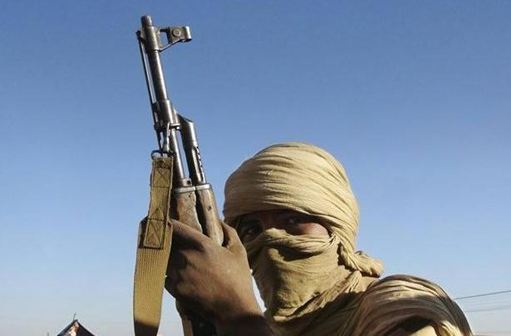
U.N. welcomes Africa’s ‘Silencing the Guns’ initiative

The U.N. Security Council welcomed Africa’s campaign for “Silencing the Guns” on the continent by 2020 and called Wednesday for international support to achieve peace in every country.
A resolution adopted unanimously by the council “expresses support for initiatives aimed at finding African solutions to African problems” while recognizing that other countries can help accelerate progress.
The council noted efforts by the African Union and regional groups to create a conflict-free continent, but it also expressed concern “over the challenging security situation in parts of Africa.” It pointed to threats posed by terrorism, maritime piracy, tensions between farmers and herders, transnational organized crime, and “the persistent violence perpetrated by insurgents, rebel, and armed groups.”
Ramtane Lamamra, the African Union’s high representative for the “Silencing the Guns” campaign, said that “notable progress has been made in preventing, managing and resolving conflicts in Africa.” He cited peace agreements in South Sudan and Central African Republic, elections in Madagascar and Congo, and the renewal of relations between Eritrea and Ethiopia in the Horn of Africa.
But Lamamra also told the council that “a number of African countries still remain trapped in a vicious cycle of violent conflict and its deadly consequences.” He didn’t provide any names, but Mali and other countries in the Sahel as well as Congo, Libya, Somalia and Sudan have faced unrest and in some cases attacks by extremists or armed groups.
Lamamra said crime, terrorism and the proliferation of small arms have been exacerbated by “the existence of ungoverned spaces” that leaves room for illegal activities. He said persistent corruption, illegal financial flows and the illegal exploitation of natural resources, poor governance and bad leadership are also “a major source of instability and conflict in Africa.”
Rosemary DiCarlo, the U.N. political and peacebuilding chief, agreed that “numerous governance challenges remain, including marginalization of certain groups from political processes, the prevalence of a ‘winner-take-all’ approach, corruption, and the mismanagement of natural resources.”
She added that “silencing the guns for good requires the participation of all,” saying women’s leadership and participation in the political sphere has slowed.
DiCarlo stressed that there is reason for optimism. She recalled that just a few days ago, Secretary-General Antonio Guterres pointed to the recent peaceful elections and peace deals saying “a wind of hope is blowing in Africa.” She noted that “across the continent, entrepreneurship is up, access to education has increased and child mortality has declined.”
Africans are leading the way, DiCarlo said, but to silence the guns “it is vital that the international community lend its support to Africa in achieving this objective.”






